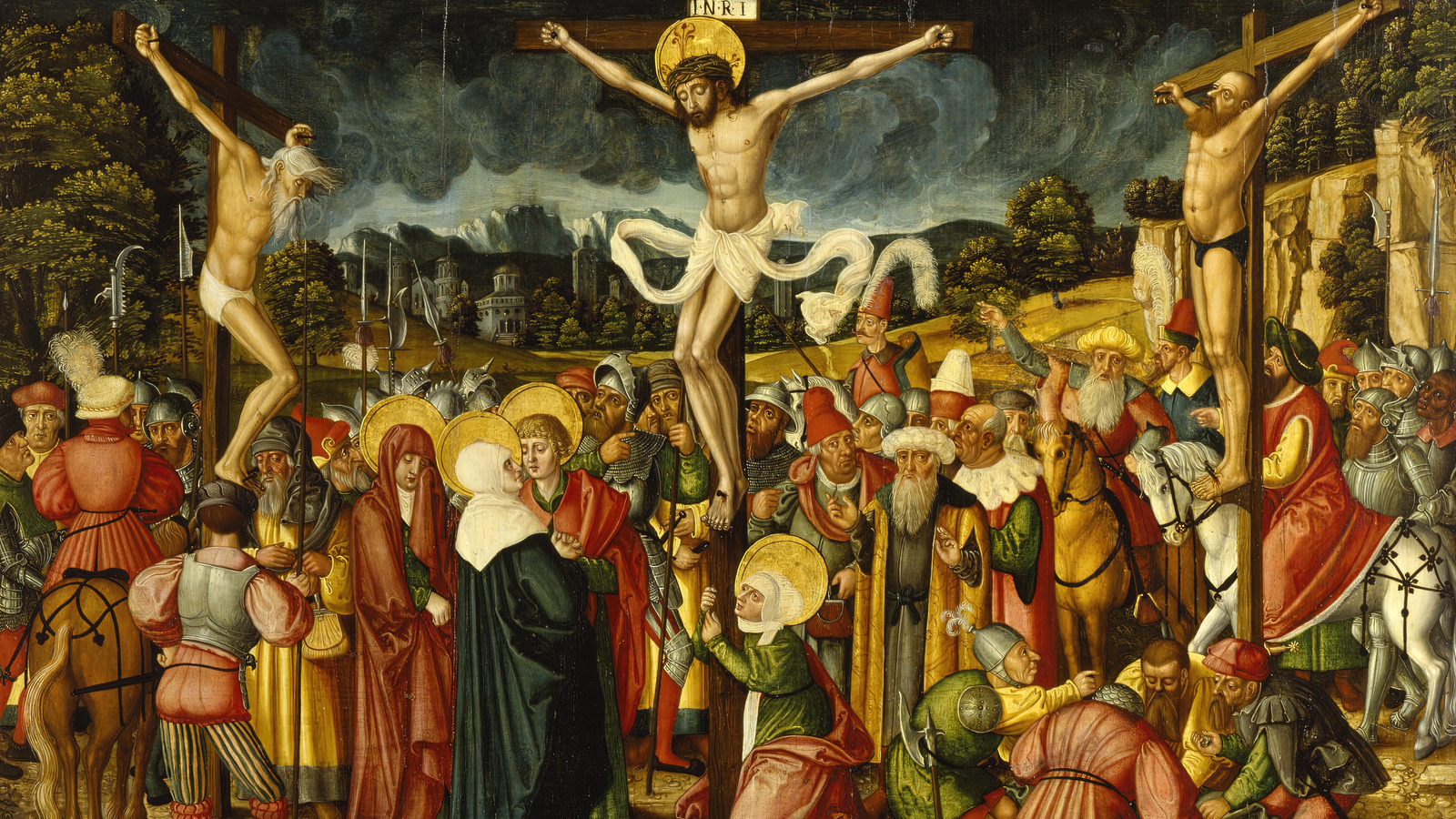
The Gospels of Matthew and Mark each hold just one of the seven sayings of Christ on the cross, and it’s the same one. In both books, after Jesus is taken to Golgotha, crucified, and mocked, he cries out “My God, my God, why hast thou forsaken me?” In so doing, he quotes Psalm 22:1. More mockery follows, and Jesus dies with a last loud cry of anguish.
Traditionally counted as the fourth saying, “Why hast thou forsaken me?” is interpreted as the Word of Abandonment. Being fully human, Jesus was capable of feeling despair, loneliness, and the sense that God had deserted him. But expanded interpretations on the Word of Abandonment include a second meaning for some; Jesus “abandons,” or relinquishes, the bonds that tie humanity to the stain of sin.
Matthew and Mark are believed to have been written for different audiences; Matthew was aimed primarily at Jewish readers, Mark at Romans and Gentiles. But their accounts of Jesus’s final moments on the cross are nearly identical. A key difference is that, in Matthew, Jesus’s lamentation and death cry are followed by the splitting of rocks, the opening of tombs, and the appearance of holy men’s ghosts to people in Jerusalem.




